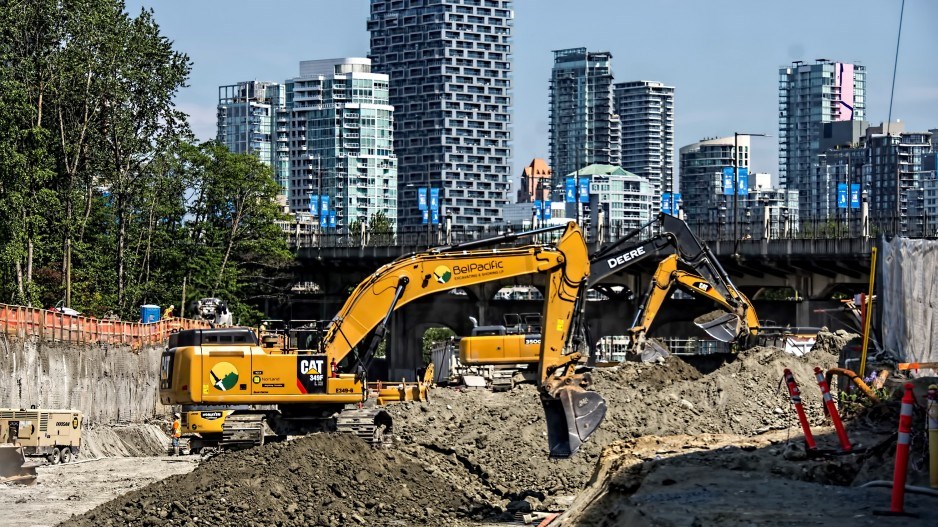The B.C. Utilities Commission (BCUC) should defer the application for a district energy system (DES) at the Senakw towers project in Vancouver until the proponent properly consults with First Nations and the general public and it files an agreement for fuel supply.
Those were the final arguments of the Residential Consumer Intervener Association (RCIA), filed Tuesday (July 18). The group said that Creative Energy Senakw LP (CESLP) held only one public information session about the proposed heating and cooling plant last Oct. 3.
“A single session may not adequately provide the necessary opportunities for affected individuals, community groups and stakeholders to express their concerns, raise questions and provide meaningful input,” the RCIA submission said. “Effective public consultation requires an ongoing and iterative process that allows for continuous dialogue and information exchange throughout the decision-making process.”
CESLP’s parent company was acquired a decade ago by Westbank Development, the partner with a Squamish Nation company in the building of 11 residential towers on reserve land around the Burrard Bridge.
CESLP admitted that it did not consult with either the Tsleil-Waututh Nation or Musqueam Indian Band about the DES. RCIA submitted that a consultation requirement would not infringe upon the sovereignty of the Squamish Nation, which owns the land for the four-phase project. Squamish Nation had opposed the DES application going to public review in the first place but chose not to contest the BCUC’s ruling.
“The duty to consult can no more be disregarded than the contractors building the associated towers can ignore building codes, whether on First Nation lands or elsewhere,” said the intervenor’s final arguments. “In RCIA’s submission, CESLP fails to provide adequate evidence it has met its obligation to consult with all potentially impacted First Nations and individuals within those communities.”
RCIA said it not only represented all residential customers, but was a conduit for individuals and groups, such as the volunteer-run Kits Point Residents Association (KPRA), whose concerns reinforced the RCIA’s opinions. KPRA advised that its members are concerned about potential noise and smell from the DES, which would be fuelled by wastewater.
“In RCIA’s submission, the failure to provide adequate and appropriate public consultation is prejudicial to local residents and groups as they are not able to fully understand and assess the potential for impacts, and implications of the project, on their properties and communities. Moreover, absent such consultations, the applicant and BCUC are not able to understand and address the informed concerns of directly impacted individuals and groups.”
KPRA is waiting for a B.C. Supreme Court judge to rule on its legal challenge to city hall’s 120-year deal to service the cluster of residential towers. The residents say the agreement with the Squamish Nation is one-sided and should be quashed because it was negotiated and passed in secret. The city maintains it acted properly under both the Indian Self-government Enabling Act and the Vancouver Charter.
BCUC sent the application to public review due to the proposal to build under civic infrastructure and connect to Metro Vancouver’s utility. But RCIA also said that the project should not be approved before governance issues are resolved, including the single customer structure. The Squamish Nation-owned Nch’kay Development Corp. is considering buying up to 50 per cent ownership in CESLP. Acquiring more than 20 per cent of voting shares would require BCUC approval.
“Similarly, the current application’s underlying feasibility, viability and environmental merits are dependant upon securing an agreement with Metro Vancouver,” RCIA’s submission stated. “Consequently, RCIA submits that its recommendation to make filing of an executed and adequate fuel supply arrangement a condition precedent to any … approval is reasonable and consistent with established precedents.”
Last month, BCUC set Sept. 1 as the deadline for CESLP to file its sewage access agreement with Metro Vancouver or provide a status update.




